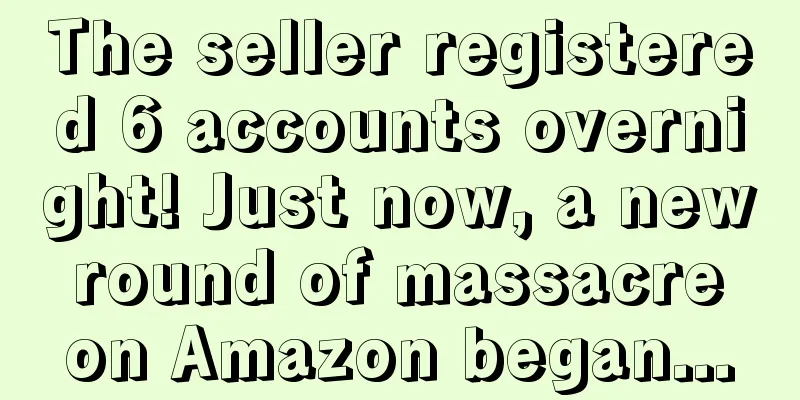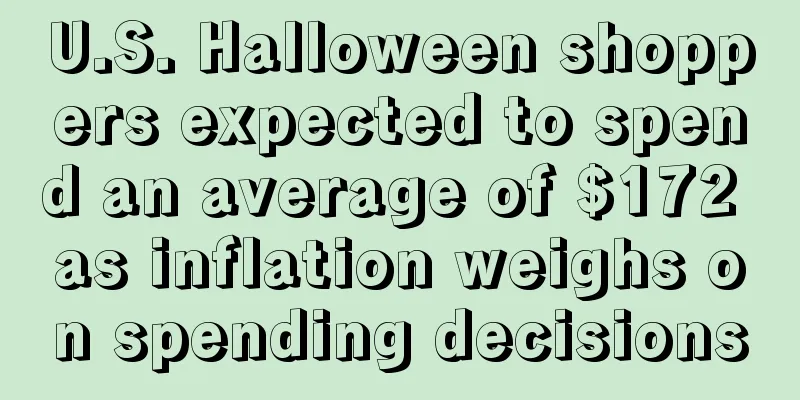Danger! Amazon's accessibility tools are banned

|
When we operate Amazon, we will inevitably use various software and browser plug-ins to view some data and analysis, such as the once popular JS plug-in and Keepa. These plug-ins are fully functional and can check the ranking changes of competitors, perform keyword popularity statistics for major categories, and estimate competitor inventory and sales. Amazon has not explicitly banned these types of data-related plug-ins, but recently Amazon has taken an overbearing measure that forces us to be more cautious when choosing similar plug-ins. At the beginning of the year, the browser plug-in "Honey", which had always been legal, was completely banned by Amazon, and users were required to uninstall it as soon as possible. ◆ ◆ ◆ ◆ Plugins banned by Amazon "Honey" is a browser plug-in for consumers that can automatically match available coupons or discount codes for products in the shopping cart across the entire network. "Honey" has been compatible with Amazon since its creation in 2012, which is also one of the important attractions of "Honey". Currently, "Honey" has more than 17 million users in the United States, and can be said to be one of the plug-ins that has grown along with Amazon. Ironically, Amazon is only now claiming that "Honey" poses a security risk, not because the plug-in has recently had any vulnerabilities or backdoors, but simply because "Honey" was recently acquired by PayPal for US$4 billion. PayPal is Amazon's competitor in the payment field and was once a subsidiary of its old rival eBay. Due to this long-standing relationship, Amazon still does not support PayPal debit card payment methods. PayPal users who want to check out on Amazon must apply for a cash card or a co-branded MasterCard. Amazon officials were unwilling to give further explanation on whether "Honey" was blacklisted by Amazon because of PayPal's acquisition. They only claimed that "Honey" would collect user data and there was a risk of leakage, so they banned the use of "Honey" on Amazon for the sake of users. However, "Honey" has been running on Amazon for seven or eight times and has been collecting data all the time (it must collect data to realize the function of matching coupons). However, Amazon only started to blacklist "Honey" for this reason after "Honey" was acquired. The reason is actually very clear, which is to prevent the old rival from obtaining its own data and suppressing PayPal's stock price. The ban on "Honey" has little impact on us sellers, but it is not difficult to see from this incident that even if the plug-in/software has maintained long-term cooperation with Amazon, once it touches Amazon's core interests, Amazon will immediately abandon it. ◆ ◆ ◆ ◆ Things that need our attention The reason why Honey was banned was that it was acquired by Amazon's competitor PayPal. When Honey performed its function (finding coupons), the user/product data collected was likely to be directly used by PayPal or even eBay to compete with Honey for the market. So if a software/plug-in we use is acquired by Amazon's competitors, then what happened to "Honey" is very likely to happen to us. These days, Amazon's business covers too many areas. Looking at the top companies in market value, almost every one of them is in competition with Amazon to some extent.
For example, if Google acquires JS or Keepa, which are data-intensive, on a whim, they will soon be blacklisted by Amazon. And this actually sets a bad precedent for Amazon. As long as this software causes Amazon to lose money in any way, or even if there is just a possibility of this happening, Amazon can simply accuse the company of a crime and block it. However, if Amazon is blacklisting competing software/websites for the sake of its own market, at least it can also provide similar services in its own market. Otherwise, the gap created will only benefit third parties. For example, in the case of "Honey", Amazon also has a corresponding official price comparison and price tracking plug-in "Amazon Assistant". Therefore, at present, the safer software/websites are those that Amazon has not touched or whose functions are not perfect , such as the social platform market. If Amazon blocks Facebook but does not have corresponding alternative functions, it will only lose a large amount of traffic from Facebook. |
<<: Why do more and more people want to do Amazon in 2020! ?
>>: Publish illegal seller data?! Amazon starts cracking down again
Recommend
What is Amazon family? Amazon family review
The Amazon Family Plan on the US Amazon website is...
What is ahrefs? ahrefs review
Ahrefs is the most powerful Google SEO auxiliary t...
What makes investors shy away from Amazon's big sales?
Cross-border Business School Information and skil...
Cool! 1.4 million unemployment benefits in the United States have been frozen! Biden: $600 is not enough!
When the second wave of money distribution in the ...
What is Amazon Category Review Invoice? Amazon Category Review Invoice Review
Amazon category review invoices (copies of invoice...
What is Cdiscount? Cdiscount Review
Cdiscount is currently the largest local e-commerc...
What is Overstock? Overstock Review
Overstock is a well-known online shopping platform...
Goodbye, Amazon
Although I have only been in the industry for mor...
What is Spring? Spring Review
Spring is a New York-based e-commerce company with...
Amazon coupon promotion, do you know how to use it effectively?
On Amazon, coupons are a powerful promotional too...
Fire breaks out at Walmart warehouse! Online orders or delivery delays!
It is learned that according to foreign media repo...
2023 US Holiday Shopper Study! Which categories are attracting attention during Black Friday and Cyber Monday?
According to the latest LTK Holiday Shopper Study,...
What is Buy2Sell? Buy2Sell Review
Founded in 2015, it is a B2B e-commerce platform h...
What challenges may Shein face as it steps up its efforts to become a third-party platform in the United States?
It is learned that after industry insiders reveale...
What is icancycling? icancycling review
icancycling is located in Shenzhen and is one of t...









